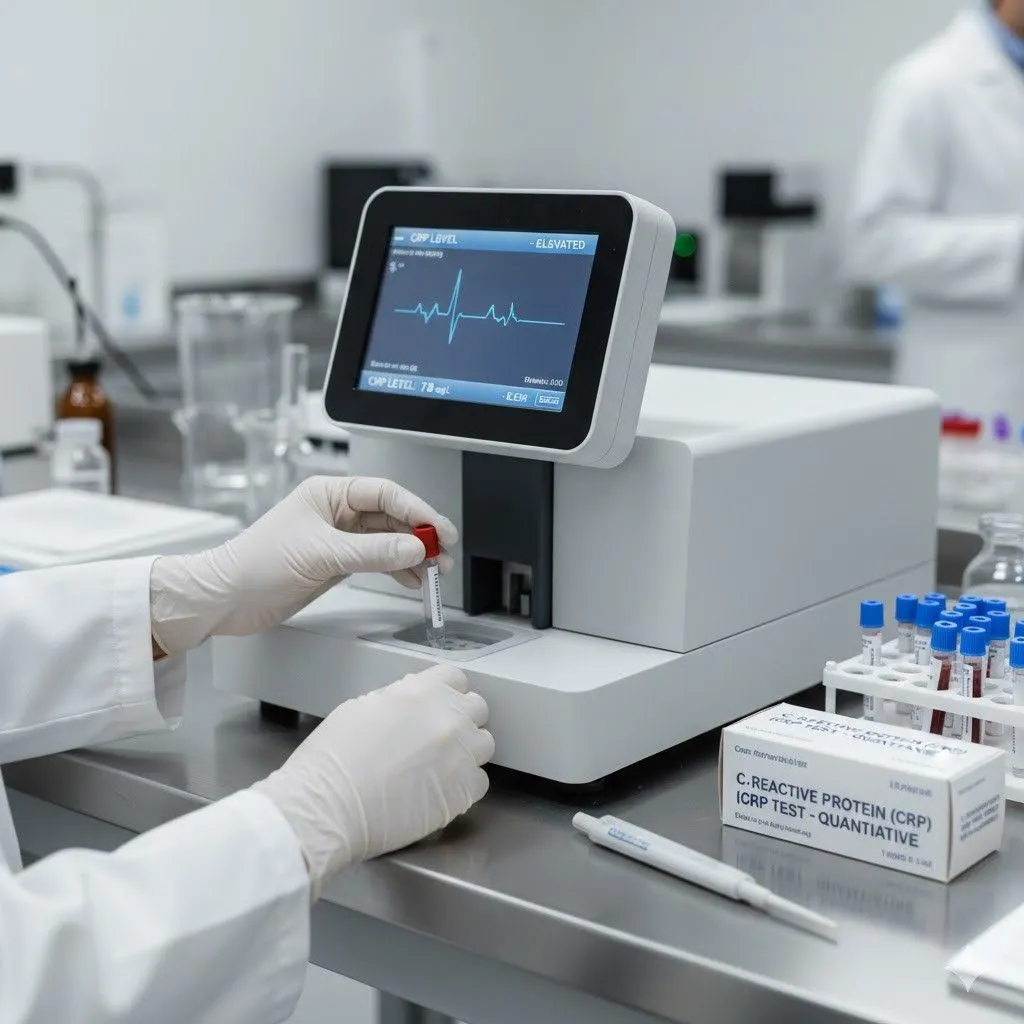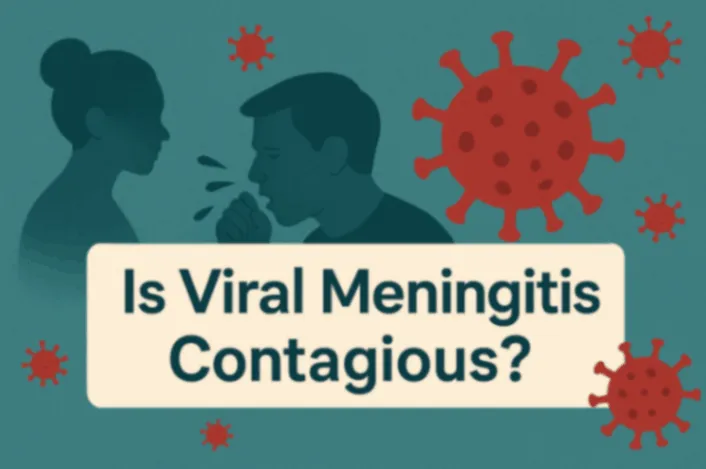Chlamydia is a common type of sexually transmitted infection (STI) (affecting over 1 million Americans) that is caused by a bacteria called Chlamydia trachomatis. As it is transferable, this might make people (who are sexually active) wonder, "Can you get chlamydia from kissing?" Though kissing seems a simple act, understanding whether it can spread chlamydia infection to a partner is crucial to avoid complications. This article will clear up this confusion and provide key facts about how chlamydia spreads, symptoms, and prevention. So let's get straight to the facts!
Can You Get Chlamydia From Kissing?
No, according to research, you cannot get chlamydia from kissing. Chlamydia is a bacterial infection that affects the throat, genitals, or anus. It spreads only through direct contact with chlamydia-infected genital fluids such as vaginal secretions, semen, or rectal fluids. These fluids aren't present in the saliva, hence, chlamydia can't be transferable through deep kissing, French kissing, or casual kissing.
Other sexually transmitted infections (STIs) that also can't be spread through kissing are human immunodeficiency virus (HIV), hepatitis, chancroid, or trichomoniasis.
Note: While kissing doesn't spread chlamydia, it’s important to know that oral sex can cause a throat infection if the person performing it is infected.
How is Chlamydia Actually Spread?
Chlamydia is transmitted through sexual contact. Here’s how:
- Vaginal, oral, or anal sex with an infected person can spread chlamydia.
- Direct contact with infected genital fluids is the primary cause of transmission.
Please note that even if symptoms aren’t visible, you can still transmit chlamydia, so it’s crucial to get tested regularly.
Symptoms of Chlamydia
Chlamydia symptoms are often mild or absent, which makes early detection difficult. However, when symptoms do occur, they can vary between women and men.
Symptoms of Chlamydia in Women
Chlamydia may cause similar symptoms like urinary tract infection (UTI) or cervicitis:
-
White, gray, or yellow vaginal discharge
-
Pus in the urine (pyuria)
-
Increased urge to pee
-
Burning sensation while urinating
-
Bleeding between periods.
-
Painful periods
-
Painful sexual intercourse
-
Dull pain in the lower abdominal area.
Symptoms of Chlamydia in Men
Chlamydia often infects the men's urethra, causing symptoms such as:
-
Mucus-like, watery penis discharge.
-
Burning sensation while urinating
-
Swelling and pain in one or both testicles (less common)
Can Chlamydia Spread Through Sex?
Yes, according to a study chlamydia can spread through vaginal, oral, or anal sex. If chlamydia infects the genitals of one partner who engages in sexual intercourse with another partner, it can spread easily.
Using condoms or dental dams during sex greatly reduces the risk of getting chlamydia. So, always be mindful of using these barrier methods.
How Long Can Chlamydia Be Spread Without Knowing?
You can spread chlamydia to another person for months or years without knowing. This is because most individuals do not develop any symptoms. It means they might be carrying the Chlamydia trachomatis without realizing it. If symptoms occur, they may start emerging around 1-3 weeks of getting infected but take a longer time to become evident.
Other STIs That Can Spread Through Kissing
Though chlamydia can't be spread through kissing, these STIs can:
-
Herpes: Herpes simplex viruses can transfer through kissing, particularly when active cold sores are present in the mouth. It can also spread even when there are no symptoms.
-
Syphilis: Can spread via direct contact with syphilis sores present on mouth, tongue, or lips.
-
HPV: Transferable through deep kissing by direct contact with infected saliva. It may cause oral cancer.
-
Cytomegalovirus: Spread through contact with saliva by kissing. It mostly develops with no symptoms.
-
Gonorrhea: Oral gonorrhea is transferable through kissing and usually causes no symptoms. In most cases, it resolves within 7 days.
Aside from STIs, kissing might also transfer bacteria or viruses associated with these conditions:
-
Infectious mononucleosis
-
Influenza
-
Coronaviruses
-
Gum Disease
-
Meningitis
-
Mumps
-
Polio
-
Rubella
-
Ebola
-
Zika
-
Rabies
Complications Associated with Chlamydia
If left untreated, chlamydia can lead to serious health issues, including:
-
Pelvic Inflammatory Disease (PID): Causes inflammation in the ovaries, uterus, and fallopian tubes that might lead to fertility issues in women and may impact sperm production and cause infertility in men.
-
Ectopic Pregnancy: As PID blocks fallopian tubes, it may lead to ectopic pregnancy (where fertilized egg implants outside the uterus), increasing the health risk for the fetus and mother.
-
Chronic Pain: Due to pelvic inflammatory disease, women might experience pelvic pain for a prolonged period.
-
Recurrent Infections: Repeated chlamydia infections and continuous damage to the entire reproductive system.
-
Increased HIV Risk: Raises the risk of transmitting or getting HIV by forming the environment in the internal genital tract that facilitates the entry of HIV into the body.
-
Pregnancy complications: As per one finding, untreated chlamydia can contribute to pre-term delivery. Additionally, it can lead to the transfer of infection from pregnant women to the babies which can cause pneumonia or eye infections in newborns.
Hence, you should not leave chlamydia untreated and see the doctor immediately as soon as you experience any unusual symptoms to receive the right treatment.
Treatment for Chlamydia
Chlamydia is easily treatable with antibiotics. The most common treatments are:
- Doxycycline (7-day course)
- Azithromycin (single dose)
These medications can help relieve an infection in 1-2 weeks. Make sure to discontinue the medication after consulting a doctor.
Important: Always complete the full course of antibiotics, even if symptoms go away. Avoid sexual contact until you’re confirmed to be infection-free.
Additional Steps for Treatment:
-
Avoid Sexual Activity: Avoid sex until the infection gets clear to avoid reinfection. As the duration for medication is over 7 days, avoid sexual intercourse in the meantime.
-
STI Testing: Get tested for all types of STIs like gonorrhea, HIV, herpes, or syphilis. This is because it's common to get infected with different STIs and knowing the exact one can help get customized treatment plans.
-
Tell Sexual Partners to Get Tested: You need to make sure to get your sexual partners tested for STIs to prevent reinfection issues.
-
Follow-up Testing: This testing may help ensure the chlamydia is completely gone, particularly when symptoms are persistent or recurrent.
Tips to Prevent Chlamydia
Even though kissing doesn’t spread chlamydia, sexual activity does. Here’s how you can protect yourself:
-
Use Contraception: Use condoms or dental dams when engaging in oral, vaginal, or anal sex to reduce the chances of chlamydia.
-
Avoid Douching: Do not douche your vagina as it raises the risk by lowering the good bacteria in the vagina.
-
Get Regular STI Testing: If you have multiple sexual partners, regular tests can help detect, treat, and prevent symptoms early before they cause complications.
-
Reduce Sexual Partner Number: Limit the number of your sexual partners as they can increase the chances of exposure to chlamydia.
-
Communicate with your Partner: Openly and honestly discuss your sexual health with your partners, including symptoms or tests. Get tested before starting a sexual relationship.
-
Seek Treatment: In case you suspect any symptoms, see a doctor for an effective diagnosis and treatment to prevent complications.
Pro Tip: If you’re sexually active, schedule STI tests at least once a year.
Myths About Chlamydia
Here are some common myths about chlamydia and the truth behind them:
|
Myth |
Fact |
|
You can catch chlamydia from toilet seats. |
Chlamydia only spreads through sexual contact, not from toilet seats. |
|
Only people with multiple sexual partners get chlamydia. |
Anyone sexually active can get chlamydia, regardless of the number of partners. |
|
You can’t get infected with chlamydia with the use of condoms. |
Though condoms reduce the risk, there is no effective method to prevent the spread of infection. |
|
You can get chlamydia through vaginal sex only. |
It can spread through oral and anal sex and genital contact without any penetration. |
|
Chlamydia can resolve on its own. |
Without treatment, chlamydia can cause long-term damage and infertility. |
Final Thoughts
So, can you get chlamydia from kissing? No, but it can spread through oral, vaginal, or anal sex. If left untreated, chlamydia can lead to serious complications, including infertility and pregnancy risks. Protect your sexual health by practicing safe sex, getting regular STI tests, and communicating openly with your partners. If you notice symptoms of chlamydia, see a doctor immediately for proper treatment.
Frequently Asked Questions
Can chlamydia be spread by saliva?
No, it can't spread through saliva which means you can not get chlamydia infection from kissing.
Can you get an STI from oral sex with swallowing?
Yes, you can even if you have no noticeable symptoms in your mouth.
What are the signs of STIs in your mouth?
Symptoms of STIs in your mouth are cold sores, blisters, swollen tonsils, redness, inflammation, white spots, yellow or whitish discharge, and swollen lymph nodes.
Can you get chlamydia from kissing with your tongue?
No, it's impossible. You catch chlamydia through oral sex only.
Reviewed by







